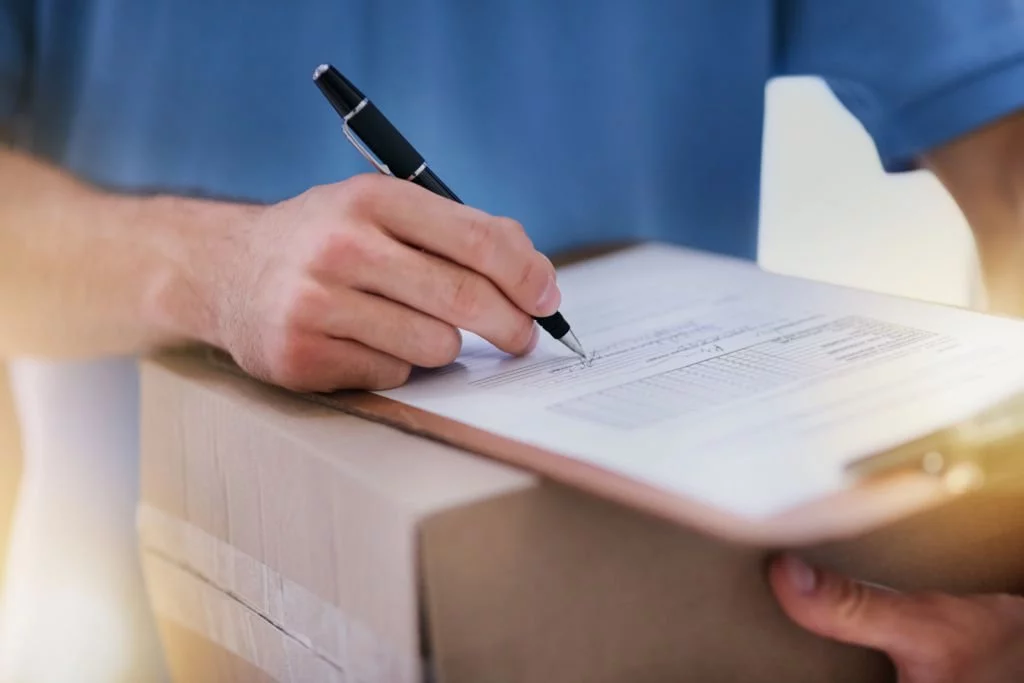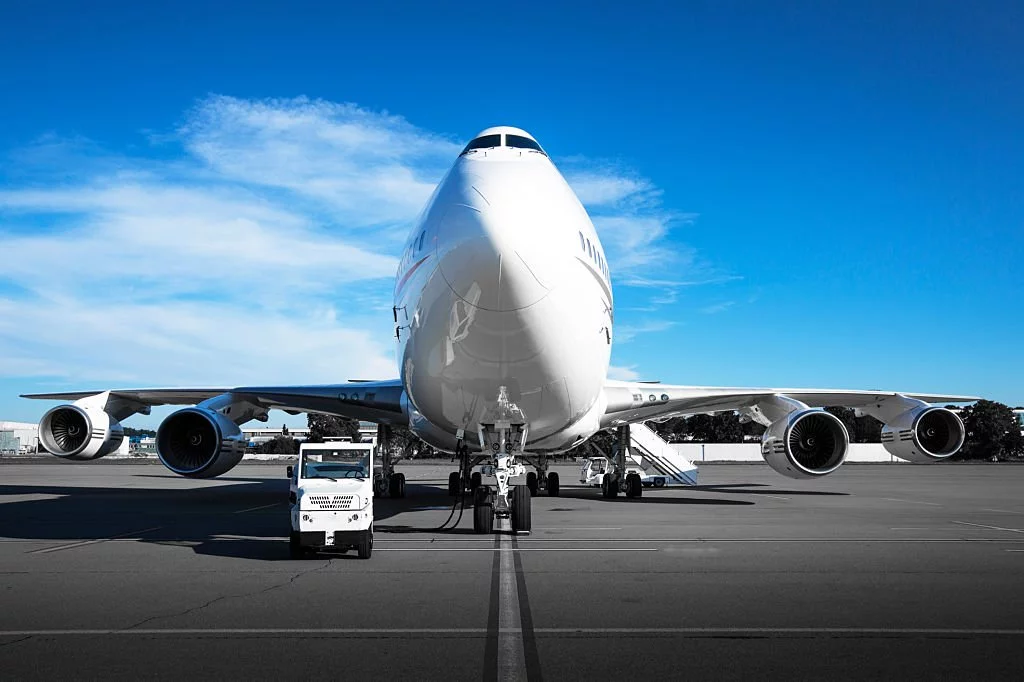
Shipping to Europe from the UK
If you’re an international business or a one-off seller – or you have family and friends in Europe – you’ll need to know the rules around shipping goods to European countries.
And with 43% of all UK exports heading to the EU – and over half of UK imports coming from EU nations – it’s important all shipments meet the guidelines, to avoid delays.
Luckily, PACK & SEND is here to help you understand the rules and regulations when it comes to shipping to and from Europe. We’ll even take care of your shipment from pick-up to drop-off, too.
Our European Shipping Services
Our European shipping services and priority delivery options get your shipments where they need to be safely, securely and on time.
And we’ll make sure you have all the required documents completed to avoid any delays.
Send and receive parcels to and from Europe using our fast and reliable shipping services:
- Air Freight
- Document Shipping
- Road Freight
- International Aviation Security

Online Self-Service
It’s easy to arrange shipments to Europe through our Online Self-Service. As long as your goods are safely packaged, weigh no more than 30kg with any dimension longer than 120cm and you have access to a printer to access your shipping labels, you may be eligible to use the service.
This solution comes at a lower cost than the full PACK & SEND service and allows you to manage the entire shipping process yourself!
Begin your shipment with a free and instant quote here!
get a quote
Shipping to the EU post-Brexit
Since January 1st, 2021, the rules around shipping to and from the EU – from the UK have changed.
The UK’s Brexit agreement means we’re no longer part of the EU’s single market or customs union. This changes the way we send and receive shipments to and from EU countries.
Put simply, the UK now treats EU countries like any other non-EU region. And EU countries treat the UK the same way. So, the same rules apply for posting to EU countries as those outside of the EU.
If it’s your first time sending parcels to the EU since the rule changes – or you just need refreshing on the regulations – there are some things you should know before shipping your items.
get a quote
What are the changes when shipping to Europe, post-Brexit?
Customs declarations, post-Brexit
The biggest change when sending parcels to Europe from England, Scotland and Wales, is that the sender now needs to complete and attach a customs declaration. This documentation will be a commercial invoice if working with an international courier.
These forms are all simple to complete but they must be as accurate and detailed as possible. Include all information on the parcel’s contents – its weight, value and a description of each item. You risk your parcel being delayed or returned to you if you don’t. You also need to include the items’ commodity code/s and country of origin. These codes can be found online.
A ‘proof of origin statement’ must also be included – confirming all contained goods are from the UK or the EU. This must be signed by the exporter and include their GB EORI (Economic Operator Registration and Identification) number. You can apply for an EORI number online. This is simply an ID code – starting with ‘GB’ – used in tracking shipments to the EU, from non-EU countries.
If you’re a one-off seller – for example, selling an item on eBay to an international buyer – you can instead use the ‘GB UNREG’ code, the GB UNREG code may be accepted, but this is not guaranteed, particularly for higher value items. But if you’re a regular eBay seller, you should register for an EORI number.
Similarly, for those sending personal items – for example, a gift to a family member or a parcel that doesn’t include sold goods – the code ‘GB PR’ can be used.
These changes do not apply to customers sending items from Northern Ireland to the EU. And letters, postcards and documents are also usually exempt.
get a quote
Costs and charges, post-Brexit
Those receiving shipments in EU countries, from the UK, may now have to pay customs or VAT charges and a handling fee to claim their parcel. These charges depend on the country, the value of the parcel and whether it is a gift or commercial shipment.
For some Business to Consumer shipments (e.g. purchases from online businesses) valued up to £135 (150 euro) VAT will be collected at the point of sale, with those above £135 (150 euro) collected on import.
For those paying VAT charges on import, the amount will be charged on the ‘landed cost’ of the shipment. This means the total cost of shipping the item – including the cost of the item, plus the shipment cost, shipping insurance and more.
Low–Value Consignment Relief (LVCR) – which currently sees VAT waved on importing goods to the EU valued below €22 – is set to end in July 2021. VAT will then be charged on goods of any value.
However, most products that originate from the UK or EU will qualify for preferential treatment – meaning no customs duties are levied. To qualify for preferential treatment at the time of import, customs declarations must include a proof of origin statement.
Excise Duties will be applied to excise shipments of any value, regardless of their origin. This includes goods like alcohol and tobacco. A full list of excise shipments can be found online.
get a quote
Do I need customs documents to ship to Europe?
Yes, any shipment exported from the UK to the EU – and vice versa – will need a customs declaration form attached. This will be a commercial invoice.
What is a commercial invoice?
A commercial invoice is a customs document that must be attached to any commercial shipment sent to the EU via an international courier. It includes details of all the goods being shipped, including their value, weight and more. Three copies should be created, one for the country the parcel is being shipped to, one for the buyer and one for the carrier.
Who pays customs duty and charges when shipping to Europe?
The recipient of the shipment pays any relevant customs duties, VAT and handling charges for the imported package.
What do the Brexit shipping rule changes mean for businesses?
Businesses exporting packages to Europe should register with HMRC for an EORI number, which should be added to all customs declarations. They must also make sure they have accurate addresses, email information and telephone numbers for all customers, to avoid delays.
What do the Brexit shipping rule changes mean for personal senders?
Personal senders can still ship parcels to Europe but they’ll need to attach customs declaration forms. These must include information on the contents of the package, including its value and weight and individual item descriptions, plus each item’s commodity code.
What if I’m just sending letters to friends and family?
One thing that hasn’t changed is sending ‘personal correspondence’. Letters and postcards are exempt from customs documentation requirements or charges, so you can keep in touch with friends, family and EU pen pals without fuss.
Will there be shipping delays after Brexit?
There may be slight delays due to the additional customs forms and declarations required post-Brexit. This adds admin work for those managing the borders, who need to inspect documentation as well as the parcel itself.
If you need to send something urgently, consider moving your parcel to an air shipping service, rather than road, as these are less likely to be impacted by any capacity delays.
Is Northern Ireland exempt from the changes?
Northern Ireland will continue to be treated as ‘intra-EU’, so there will be no changes when sending items from Northern Ireland to the EU.
For those sending parcels from Great Britain to Northern Ireland, there is a 3-month grace period in place until 31st March 2021, within which, parcels will move as they did prior to Brexit. From April 2021, parcels sent from Great Britain to Northern Ireland will be subject to the same customs requirements as EU countries although the details are still being finalised.
Most goods will continue to be moved from Northern Ireland to Great Britain without any new procedures.
What is an EORI number?
An Economic Operator Registration and Identification (EORI) number is an ID number used to track customs information on shipments to the EU.
Are EORI numbers required by every business now shipping to the EU through a shipping service?
Yes, any business exporting to the EU needs an EORI number. However, some carriers will accept shipments valued below £900 under their memorandum of understanding (MOU), as no formal entry is required.
Excisable items cannot be accepted as part of an MOU and an entry would need creating, along with an EORI number.
Is an EORI number required for non-commercial shipments?
If the shipment is above the MOU threshold of £900, then an export entry is required, regardless of the reason for exporting. Customs entries are still required, along with an EORI number.
Can the ‘GB UNREG’ code still be used for unregistered businesses?
No, using the ‘GB UNREG’ code for unregistered businesses would be non-compliant. Exporters should register for an EORI number, whether they are VAT–registered or not.
However, if the seller is making a one-off shipment – for example, selling an item on Ebay – this can be cleared using the GB-UNREG code. This needs to be confirmed in writing by the exporter of record (the seller), though.
Is ‘GB-PR’ still applicable and, if so, in what circumstances?
The GB–PR code is only applicable for private individuals sending personal belongings or gifts to friends and family, it cannot be used for sold items.
If I work with PACK & SEND to ship sold goods to an EU-based buyer, who is declared as the exporter?
The current possessor and seller of the goods should be declared as the exporter of record. The shipment can be declared as ‘c/o PACK & SEND’ but the exporter’s EORI number will still need confirming.
How do I benefit from preferential treatment – or ‘zero tariff’ – for customs duties?
Most products which originate from the UK or EU will qualify for preferential treatment and therefore, zero customs tariffs. To benefit from preferential treatment at the time of import, customs declarations must include a proof of origin statement.
Use the statement below for UK or EU goods which fulfil the relevant origin requirements. It’s important this information is provided pre-clearance.
‘The exporter of the products covered by this document (Exporter Reference No. (REX or GB EORI number)) declares that, except where otherwise clearly indicated, these products are of ……. preferential origin.
(Place and date)* (Name of the exporter)’
*Can be excluded if this information is already contained in the document itself.
Do I need a proof of origin statement?
A ‘proof of origin statement’ must be included in customs declarations for any shipments to the EU. This must be signed by the exporter and include their GB EORI number.
When receiving shipments to the UK from the EU, the origin statement on the invoice can be made out by any exporter where the value of the consignment is €6,000 (currently £5,700) or less. Above this amount, the EU exporter must have a Registered Exporter (REX) number and include it in the statement.
What are excise duties?
Excise duties are tariffs added to the shipment of certain products, like alcohol and tobacco. A full list of items subject to excise duties can be found online. Any shipment to the EU which contains excised items must be declared using each item’s commodity code on the parcel’s customs form.
Can I send animal or phytosanitary products to the EU?
Goods that come under the sanitary and phytosanitary category, like animal products, plants, cosmetics and perfumes, may be subject to import controls before being allowed to enter the EU. Depending on the product, this may mean document, identity or product checks, or even batch quality testing.